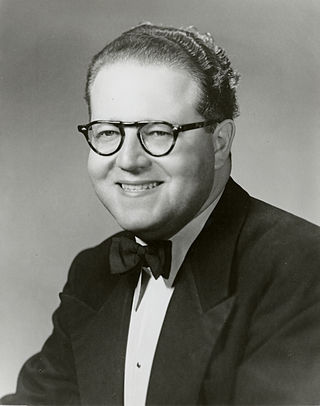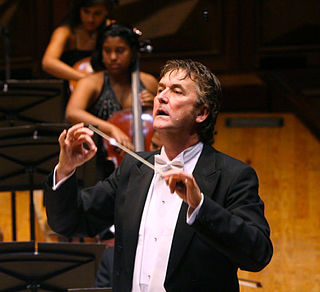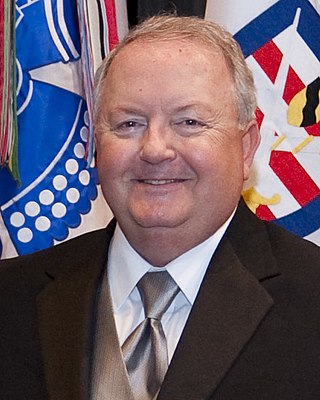Footnotes
- ↑ Bratby, Richard (19 October 2019). "The joy of Malcolm Arnold's optimistic, hummable tunes". The Spectator . London. Retrieved 14 June 2022.
- ↑ "Arnold's Peterloo Overture: The Binaural Mix". BBC. Retrieved 14 June 2022.
- ↑ "Peterloo: Overture for orchestra". Faber ff Music. Retrieved 11 June 2022.
- 1 2 Jackson 2019, p. 108.
- 1 2 Banfield 1982, p. 375.
- ↑ Cole 1989, pp. 154–156.
- ↑ Craggs, Stewart R. (1998). Malcolm Arnold: A Bio-Bibliography. Bio-Bibliographies in Music, 69. Westport: Greenwood Press. p. 28. ISBN 9780313292545 . Retrieved 11 June 2022.
- ↑ Pirie, Peter J. (October 1980). "Review of Peterloo Overture". The Musical Times . 121 (1652): 653.
- ↑ Greenfield, Layton & March 1988, p. 10.
- ↑ MacDonald, Malcolm (June 1990). "[Review]". Gramophone . 68 (805): 41. Retrieved 11 June 2022.
- ↑ Greenfield, Layton & March 1988, p. 11.
- ↑ Quinn, John (7 April 2007). "Review of Sir Malcolm Arnold (1921–2006): Arnold conducts Arnold". MusicWeb International. Retrieved 11 June 2022.
- ↑ Cole 1989, p. 156.
- ↑ Goodrich, Robbie (17 November 2015). "Wind Symphony, Symphonic Band to perform British, American classics". Stephen F. Austin State University. Retrieved 11 June 2022.
- 1 2 3 4 5 6 [Anonymous] 2015, p. 18.
- 1 2 Landon 2018, p. 10.
- ↑ "Peterloo brass band". Faber ff Music. Retrieved 22 May 2022.
- ↑ "Peterloo (choral version)". Faber ff Music. Retrieved 11 June 2022.
- ↑ BBC Proms: The Official Guide: 18 July–13 September 2014. London: BBC Books. 2014. p. 58. ISBN 9781849908108 . Retrieved 11 June 2022.
- ↑ "Sir Malcolm Arnold – The Composer, The Conductor - A 75th Birthday Tribute". Discogs. Retrieved 12 June 2022.
- ↑ Pirie, Peter J. (1980). 20th Century British Music: A Collector's Guide. Beverly Hills: Theodore Front Musical Literature. p. 17. ISBN 0934082022 . Retrieved 12 June 2022.
- ↑ Quinn, John (5 April 2005). "Recording of the Month". MusicWeb International. Retrieved 12 June 2022.
- ↑ "Malcolm Arnold, The BBC Concert Orchestra, Vernon Handley – Malcolm Arnold". Discogs. Retrieved 12 June 2022.
- ↑ "University Of Wisconsin Milwaukee Wind Ensemble, University Of Wisconsin Milwaukee Symphony Band, Thomas Dvorak – Classics For Wind Ensemble/Symphony Band Volume One". Discogs. Retrieved 14 June 2022.
- ↑ "Wind Ensemble, Kenneth Steinsultz – Hail To Evansville". Discogs. Retrieved 14 June 2022.
- ↑ "Various – WASBE Concerts, 1995 (The 7th WASBE Conference, Hamamatsu, Japan)". Discogs. Retrieved 14 June 2022.
- ↑ "Malcolm Arnold, Tokyo Kosei Wind Orchestra, Douglas Bostock – An Arnold Celebration". Discogs. Retrieved 12 June 2022.
- ↑ "[CD] Blessed Promising Future". Brain Music. Retrieved 13 June 2021.
- ↑ Jackson 2019, p. 72.
- ↑ "Bunkyo Sound Selection". FC2. Retrieved 13 June 2021.
- ↑ "Wind band masterworks. Vol. 2 [electronic resource]". SearchWorks Catalog. Stanford University. Retrieved 12 June 2022.
- ↑ "Harmonie St. Caecilia Geulle – Caecilia In Concert". Discogs. Retrieved 14 June 2022.
- ↑ "University Of Illinois Symphonic Band, James F. Keene – In Concert With The University Of Illinois Symphonic Band Recording #127". Discogs. Retrieved 14 June 2022.
- ↑ "The United States Air Force Tactical Air Command Band, Major Lowell E. Graham – In Concert". Discogs. Retrieved 14 June 2022.
- ↑ Holman 2021, p. 344.
- ↑ Holman 2021, p. 373.
Related Research Articles

The Year 1812, Solemn Overture, Op. 49, popularly known as the 1812 Overture, is a concert overture in E♭ major written in 1880 by Russian composer Pyotr Ilyich Tchaikovsky. The piece commemorates Russia's successful defense against the French invasion of the country by Napoleon in 1812.

A concert band, also called a wind band, wind ensemble, wind symphony, wind orchestra, symphonic band, the symphonic winds, or symphonic wind ensemble, is a performing ensemble consisting of members of the woodwind, brass, and percussion families of instruments, and occasionally including the harp, double bass, or bass guitar. On rare occasions, additional, non-traditional instruments may be added to such ensembles such as piano, synthesizer, or electric guitar.

Sir Malcolm Henry Arnold was an English composer. His works feature music in many genres, including a cycle of nine symphonies, numerous concertos, concert works, chamber music, choral music and music for brass band and wind band. His style is tonal and rejoices in lively rhythms, brilliant orchestration, and an unabashed tunefulness. He wrote extensively for the theatre, with five ballets specially commissioned by the Royal Ballet, as well as two operas and a musical. He also produced scores for more than a hundred films, among these The Bridge on the River Kwai (1957), for which he won an Oscar.

Alfred Friedman was an American neoclassical composer, with more than two hundred published works for concert band, orchestra, chorus, and chamber ensemble to his name. He also traveled extensively as a guest conductor, performing in North America, Latin America, Europe and Asia.

Frederick Fennell was an American conductor and one of the primary figures which promoted the Eastman Wind Ensemble as a performing group. He was also influential as a band pedagogue, and greatly affected the field of music education in the US and abroad. In Fennell's New York Times obituary, colleague Jerry F. Junkin was quoted as saying "He was arguably the most famous band conductor since John Philip Sousa."
Gordon Percival Septimus Jacob CBE was an English composer and teacher. He was a professor at the Royal College of Music in London from 1924 until his retirement in 1966, and published four books and many articles about music. As a composer he was prolific: the list of his works totals more than 700, mostly compositions of his own, but a substantial minority of orchestrations and arrangements of other composers' works. Those whose music he orchestrated range from William Byrd to Edward Elgar to Noël Coward.
Nicolas Oreste Flagello was an American composer and conductor of classical music. He was one of the last American composers to develop a distinctive mode of expression based wholly on the principles and techniques of late romanticism.
Four Scottish Dances (Op.59) is an orchestral set of light music pieces composed by Malcolm Arnold in 1957 for the BBC Light Music Festival.

Johannes Abraham "Johan" de Meij is a Dutch conductor, trombonist, and composer, best known for his Symphony No. 1 for wind ensemble, nicknamed The Lord of the Rings symphony.
The Philharmonic Wind Orchestra is a Singaporean semi-professional wind orchestra. The orchestra was formed in 2000 with Robert Casteels as Music Director and currently has more than 70 members. It is currently under the artistic leadership of Music Director Leonard Tan.
Birmingham Symphonic Winds (BSW) is a UK-based amateur wind orchestra in the style of the Eastman Wind Ensemble.
Christopher Marshall is a New Zealand classical music composer who resides in Orlando, Florida, United States.

James Charles Barnes is an American composer.
Yasuhide Ito is a contemporary Japanese composer.
Arthur Eckersley Butterworth, was an English composer, conductor, trumpeter and teacher.
Scott Boerma is a composer of contemporary classical music, an arranger of music for marching ensembles, and the Director of Bands at Western Michigan University.

Andreas Makris was a Greek-American composer and violinist, born in Kilkis, Greece, on March 7, 1930. He was a Composer-in-Residence for many years at the National Symphony Orchestra in Washington DC, working with conductors such as Howard Mitchell, Mstislav Rostropovich, Antal Dorati, and Leonard Slatkin. He composed around 100 works for orchestra, chamber ensembles, and solo instruments, including the Aegean Festival Overture, which, transcribed for concert band by Major Albert Bader of the USAF Band, became a popular piece with US bands. Grants and awards he received include the Damroch Grant, National Endowment for the Arts Grant, the Martha Baird Rockefeller Award, ASCAP Award, the Fulbright Scholarship, and citations from the Greek Government.
Boris Pigovat is an Israeli composer. Many of his works have been performed throughout the world. He studied at Gnessin Music Institute in Moscow. Between 1978 and 1990 he lived in Tajikistan, and immigrated to Israel in 1990. In 2002 he received his Ph.D. degree from Bar-Ilan UniversityArchived 2007-05-09 at the Wayback Machine (Israel).
The Brooklyn Wind Symphony (BKWS) is a community band based in Brooklyn, New York.
References
- [Anonymous] (August 2015). "Malcolm Arnold Discography" (PDF). The Malcolm Arnold Society. Retrieved 11 June 2022.
- Banfield, Stephen (July 1982). "Review of Peterloo Overture". Music & Letters . 63 (3–4): 374–375. doi:10.1093/ml/63.3-4.374.
- Cole, Hugo (1989). Malcolm Arnold: An Introduction to His Music. London: Faber. ISBN 9780571100712 . Retrieved 10 June 2022.
- Greenfield, Edward; Layton, Robert; March, Ivan (1988). The New Penguin Guide to Compact Discs and Cassettes. London: Penguin. ISBN 0140468293 . Retrieved 11 June 2022.
- Holman, Gavin (January 2021). "Vintage Brass Band Recordings – Compact Discs". ibew. Retrieved 12 June 2022.
- Jackson, Paul R. W. (2019) [2003]. The Life and Music of Sir Malcolm Arnold: The Brilliant and the Dark. Abingdon: Routledge. ISBN 9780367174613 . Retrieved 21 May 2022.
- Landon, Raymond S. (21 February 2018). "USAF Heritage of America Band, Langley Air Force Base, Virginia Discography 1985–2017" (PDF). Air Force Bands. Retrieved 14 June 2022.